The rise and fall of 10 worst football team
Football is a game that thrives on passion, rich history, and the pursuit of success. However, not every team can achieve consistent victories on the pitch. When talking about the worst football team in the world, it is important to understand that “worst” is subjective. The following teams, despite their illustrious pasts and loyal fan bases, have faced numerous obstacles, leading to their reputation as some of the least successful football teams in the world. These challenges range from financial turmoil and poor management to poor performance and difficulty maintaining their league status. Join Premiumsoccertips.net to learn more about the 10 worst football team through the following article!
List of the 10 worst football team in the world
1. Bolton Wanderers (England)
Bolton Wanderers, a long-standing English football club founded in 1874, was once a formidable force in the English football world. The team had a golden age when it played in the Premier League and even participated in European tournaments, leaving its mark with historic victories. However, Bolton’s fortunes have changed dramatically in the past decade. Serious financial management problems have left the team in turmoil. With mounting debts and unstable ownership, Bolton was not only relegated from the Premier League in 2012 but also continued to decline through the lower leagues, losing its former status.
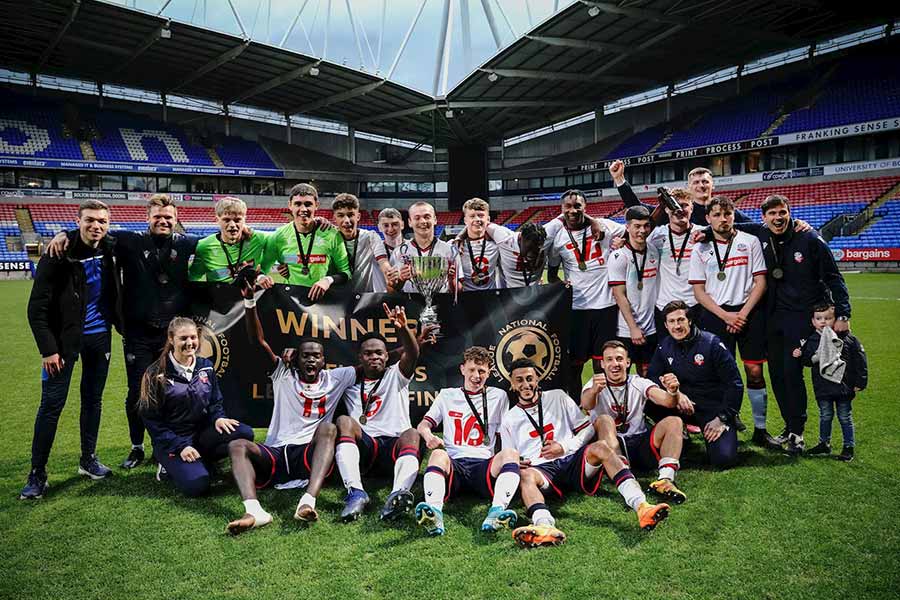
The climax of the decline came in 2019 when Bolton Wanderers filed for bankruptcy and was on the verge of being completely liquidated. Despite being saved, the team currently competes in EFL League One, with limited resources and a squad not strong enough to compete at a higher level. This has led many fans to question whether Bolton are one of the “worst football teams” when it comes to their decline from their glorious past. However, with a long history and a loyal fan base, Bolton are still trying to rebuild step by step, but the road back to the glory days of English football is still a difficult challenge.
2. Getafe CF (Spain)
Getafe CF, a youth football club from Spain, was founded in 1983 and currently competes in La Liga, the country’s top flight. As a newcomer to Spanish football, Getafe is often seen as a fairly average team, not outstanding but still able to avoid the bottom of the table. However, the club has never achieved great milestones in its history. They have never won a major domestic or European trophy, and this has often led to Getafe being considered a “middle-of-the-road” team in La Liga.
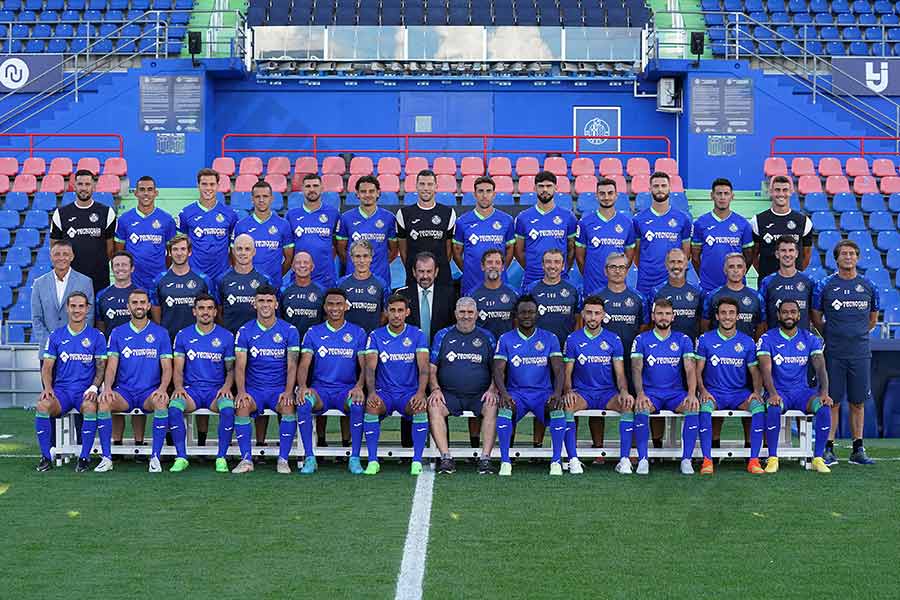
One of the factors that has prevented Getafe from breaking through is their conservative and defensive style of play. This style has not only been criticized by critics for lacking appeal, but also hindering their ability to attract top talent. A limited budget compared to big clubs like Real Madrid or Barcelona has made it even more difficult for the team to build a competitive squad. They have often struggled to avoid relegation, and inconsistent form has been a constant problem for the club. With these limitations, Getafe are sometimes labelled as one of La Liga’s weakest teams in terms of achievements and influence, although they are still working hard to consolidate their position in the prestigious competition.
3. Sunderland AFC (England)
Sunderland AFC, a historic English football club, was founded in 1879 and currently competes in the EFL Championship. Once a symbol of top-flight football in England, Sunderland enjoyed a golden age with six national championship titles. However, in recent years, the team has become a symbol of decline and poor management. After many seasons struggling at the bottom of the Premier League, Sunderland were finally relegated in 2017. Worse, just a year later, they were relegated to League One, marking one of the darkest periods in the club’s history.
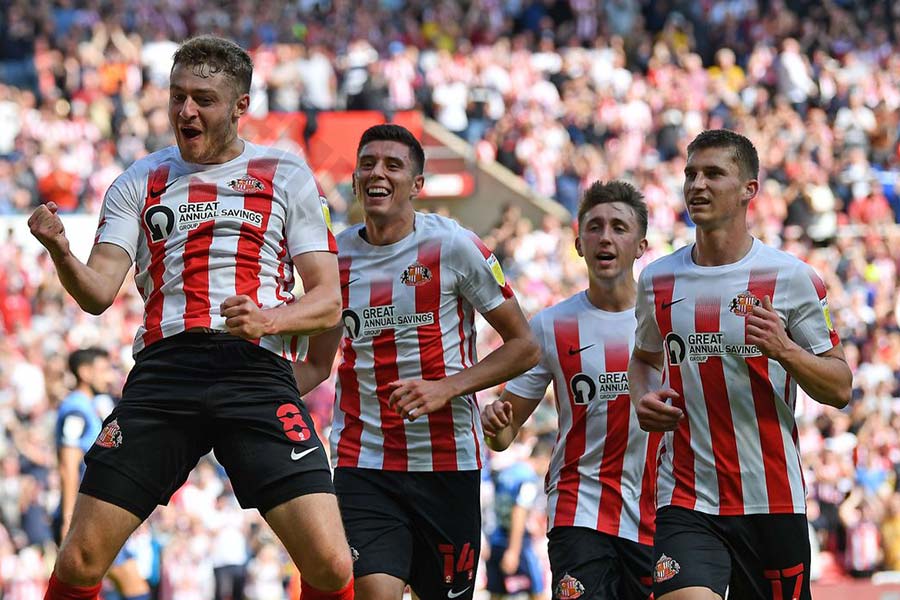
The cause of this decline stems from poor management decisions. The club has seen a succession of manager changes, failed transfers, and no clear development strategy under its owners. Financial difficulties have compounded the problem, leading to a significant decline in the quality of the squad. Despite returning to the Championship, Sunderland are still in the process of rebuilding. Recent attempts to restore the club to its former glory have been met with challenges, and the experience still ranks as one of the most regrettable declines in English football history.
4. Frosinone Calcio (Italy)
Frosinone Calcio, a small Italian football club founded in 1906, currently competes in Serie B. With a history largely tied to the lower divisions, Frosinone have had limited opportunities to make a big mark in Italian football. Despite some breakthrough moments, including promotion to Serie A, the team has often returned to Serie B after just one season. Their poor performance in the top flight is largely due to their limited finances and lack of fan base, making it difficult for Frosinone to compete with larger, more traditional clubs.
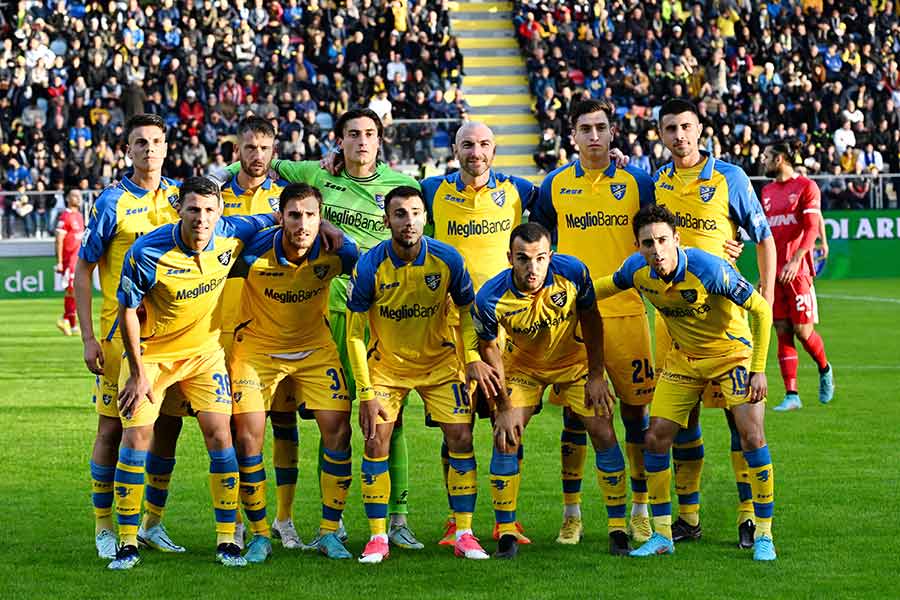
Frosinone’s struggles extend beyond their finances. A lack of infrastructure and strategic investment has prevented the club from building a squad strong enough to stay in Serie A. Even in Serie B, they have struggled to maintain consistency, often struggling to compete with their rivals. These issues have left Frosinone as one of the weakest clubs in terms of sustainability at the top level. Despite this, the club is still looking to improve and hopes for a brighter future, although the road ahead is fraught with challenges.
5. Hamburger SV (Germany)
Hamburger SV, one of Germany’s most storied football clubs, was founded in 1887 and has long been a symbol of success in European football. The club has won numerous national titles, including six Bundesliga titles, and the pinnacle was the 1983 European Cup. However, from a dominant force, HSV has gone through a long decline. In 2018, they were relegated from the Bundesliga for the first time in their history after 55 consecutive years of playing in the top flight. This was a huge shock to fans and German football, marking the downfall of a great icon.
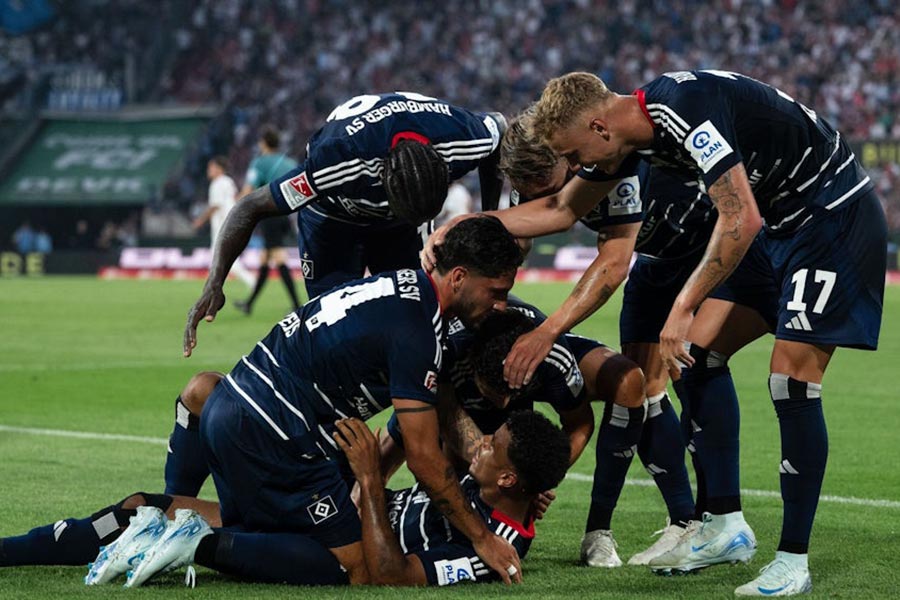
The main reason for this decline stems from years of poor management. The club’s leadership has changed constantly, leading to instability in its development strategy. Poor recruitment decisions and an inability to build a cohesive squad have weakened the team. Furthermore, growing financial problems have left HSV unable to invest enough to compete with rivals. Currently, despite playing in the 2.Bundesliga, Hamburger SV is struggling to find stability. Efforts to return to the Bundesliga have been hampered by inconsistent results and heavy financial pressure. For HSV, restoring their former glory is not only a huge challenge but also a difficult dream.
Unlock super betting tips that give players maximum winning potential
6. Dundee Football Club (Scotland)
Dundee FC, a historic Scottish football club, was founded in 1893 and currently competes in the Scottish Premiership. With a history spanning over a century, Dundee FC is a household name in Scottish football, but it is largely associated with hardship rather than success. The club has often oscillated between the Premiership and the lower divisions, never truly settling in the top flight. While there have been memorable moments, such as reaching the semi-finals of the European Cup in 1963, these rare successes have only highlighted the club’s long-standing instability.
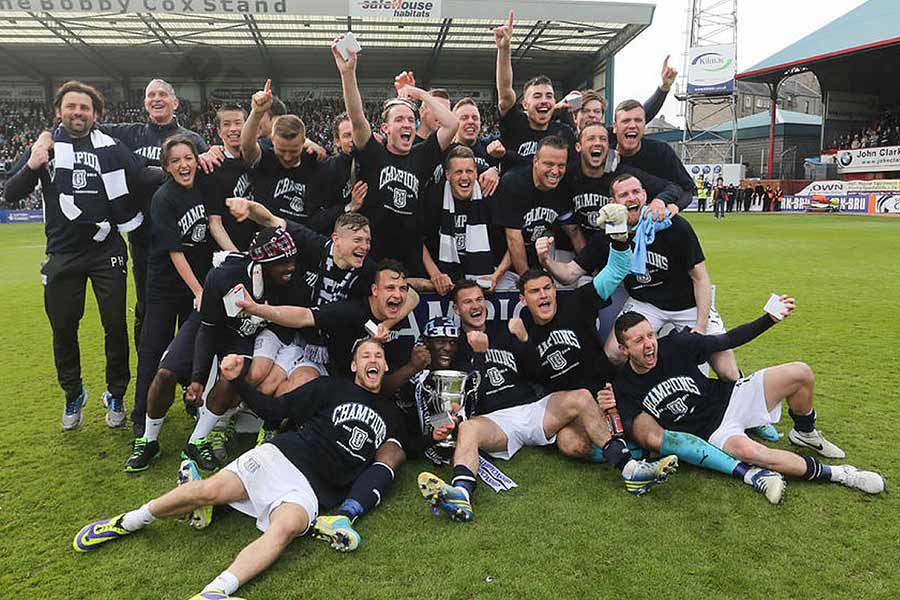
Financial instability is one of the biggest obstacles facing Dundee FC. The club has filed for bankruptcy twice in the past two decades, which has not only damaged its image but also hampered its ability to attract and retain high-quality players. Even in the Scottish Premiership, Dundee FC have often been seen as an underdog, struggling to avoid relegation and struggling to compete with stronger sides such as Celtic and Rangers. Despite their passionate support, Dundee FC are still looking for stability and a clear path to improve their standing in Scottish football. Recent rebuilding efforts have offered hope, but the road back to glory is still long and challenging.
7. Rayo Vallecano (Spain)
Rayo Vallecano, founded in 1924, is a Spanish football club based in Vallecas, a working-class area of Madrid. Known for their fighting spirit and community involvement, Rayo are an icon of grassroots football. However, the club has struggled to escape the enormous shadow of Madrid giants Real Madrid and Atlético Madrid. Operating on one of the smallest budgets in La Liga, Rayo have often struggled financially, making it challenging to build a squad strong enough to compete in the top flight.
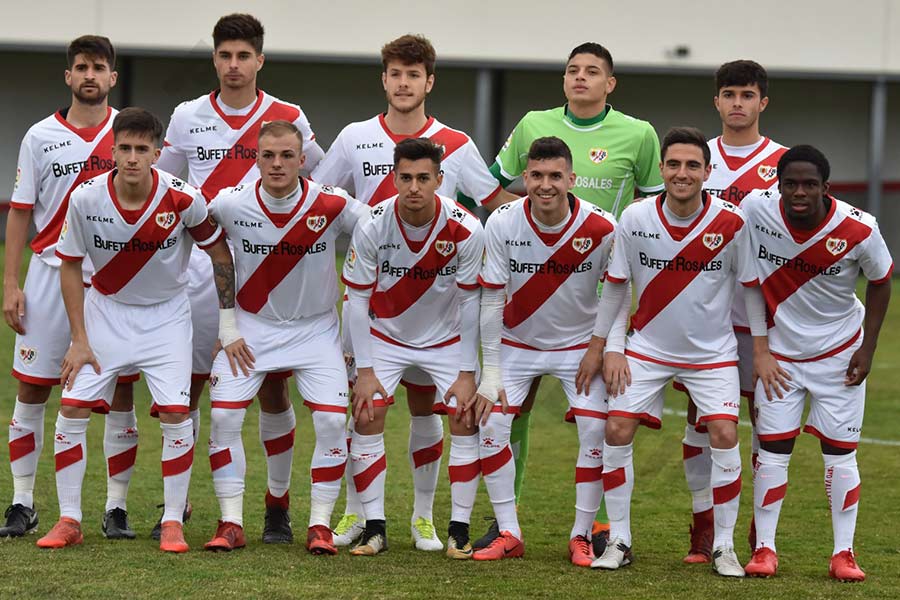
Rayo Vallecano’s form has been inconsistent, with brief promotions to La Liga interspersed with spells in the Segunda División. Constant changes in management and a lack of long-term investment have made it difficult for the club to maintain its place in the top flight. Despite this, Rayo still enjoys a loyal fan base, who are proud of the team’s relentless fighting spirit. Despite the difficulties, Rayo Vallecano continue to represent the resilience and hope of small clubs in the competitive world of football. However, to achieve sustainable success, the club needs to address its financial issues and develop a more stable development strategy for the future.
8. Macclesfield Town (England)
Macclesfield Town, re-formed in 2020, is an English football club currently playing in the Northern Premier League (NPL). The club marks a revival from the ashes of its predecessor, which existed since 1874 but was dissolved the same year due to serious financial difficulties. The collapse of the old Macclesfield Town was not only a huge blow to fans but also left the town of Macclesfield without an important piece of its footballing heritage. However, the emergence of the new Macclesfield Town has rekindled hope, providing an opportunity to rebuild from scratch and restore faith in local football.
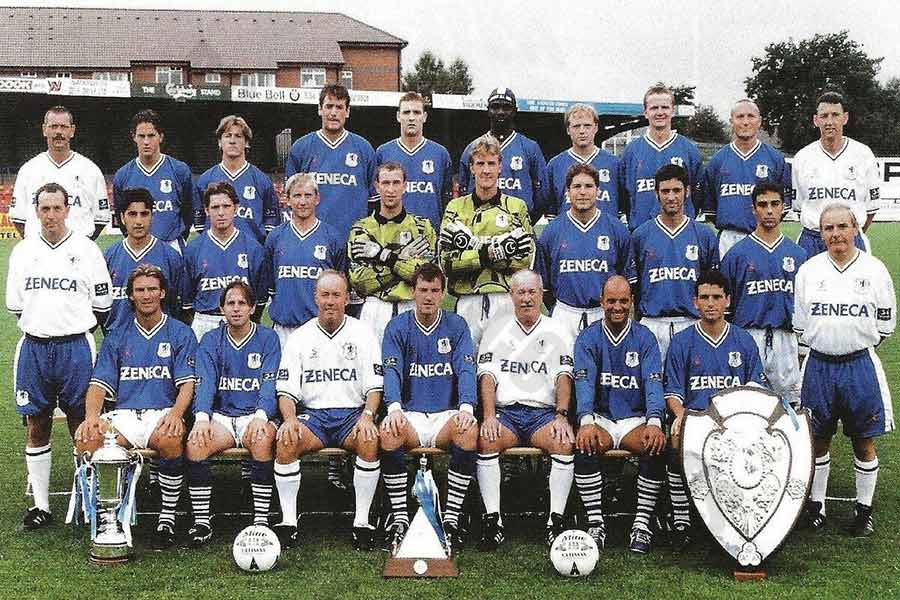
However, the club’s journey has only just begun and is fraught with challenges. Macclesfield Town currently play in a division far below the former heights the club reached in the English Football League. With limited resources, the club had to rebuild from scratch, from developing the squad, expanding the fan base to dealing with financial pressures. Furthermore, climbing to the upper echelons of English football is an arduous task, requiring not only financial stability but also a long-term development strategy. However, with a resilient spirit and support from the community, Macclesfield Town is gradually rebuilding its name, hoping to once again assert its position in English football.
9. Sint-Truidense VV (Belgium)
Sint-Truidense VV (STVV), a Belgian football club, was founded in 1924 and currently competes in the Belgian Pro League. Representing the city of Sint-Truiden, the team is known for its tenacious fighting spirit but has often faced challenges in competing with top clubs. Despite some memorable moments, such as qualifying for European competitions, STVV is still considered a mid-table team, rarely escaping the lower half of the domestic league table.
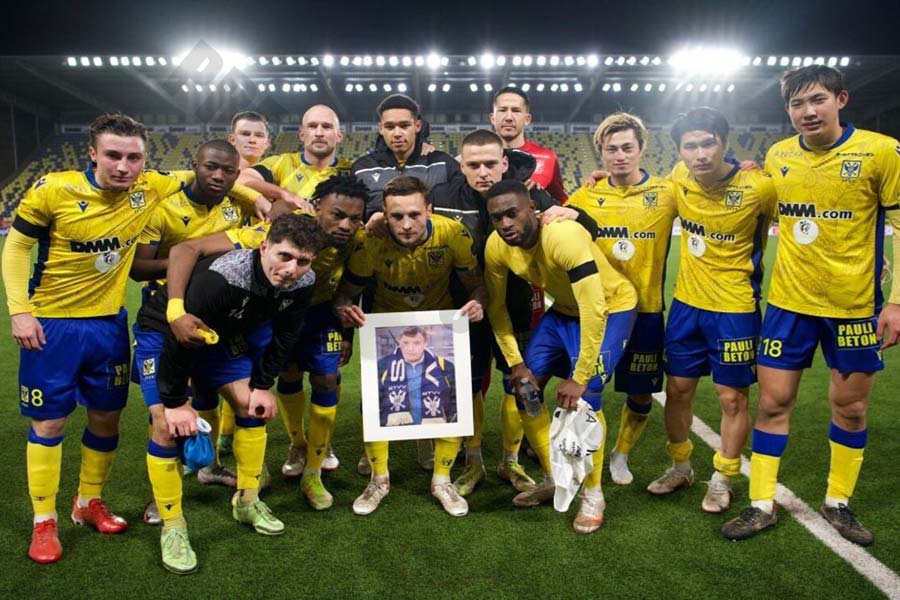
Financial constraints are one of the main reasons why STVV has not been able to maintain long-term competitiveness. A tight budget and difficulty in attracting high-profile players have hampered their ability to build a strong squad. In addition, the club frequently changes coaching staff in an attempt to find a breakthrough, creating instability and inconsistency in the style of play. STVV is often overshadowed by big and wealthy clubs such as Club Brugge or Anderlecht, and this is reflected in the matches and final standings. However, the team still retains enthusiastic support from fans and hopes for financial stability to assert its position in the future.
10. Verona (Italy)
Hellas Verona, or Verona, is a historic Italian football club, founded in 1903 and currently playing in Serie A. The club achieved a notable feat by winning the Serie A title in 1985, a remarkable achievement in a league dominated by big names. However, since then, Verona have often struggled to maintain a consistent presence in Italy’s top flight. The club has struggled with relegation and despite attempts at promotion, Verona have often found themselves fighting to avoid relegation.
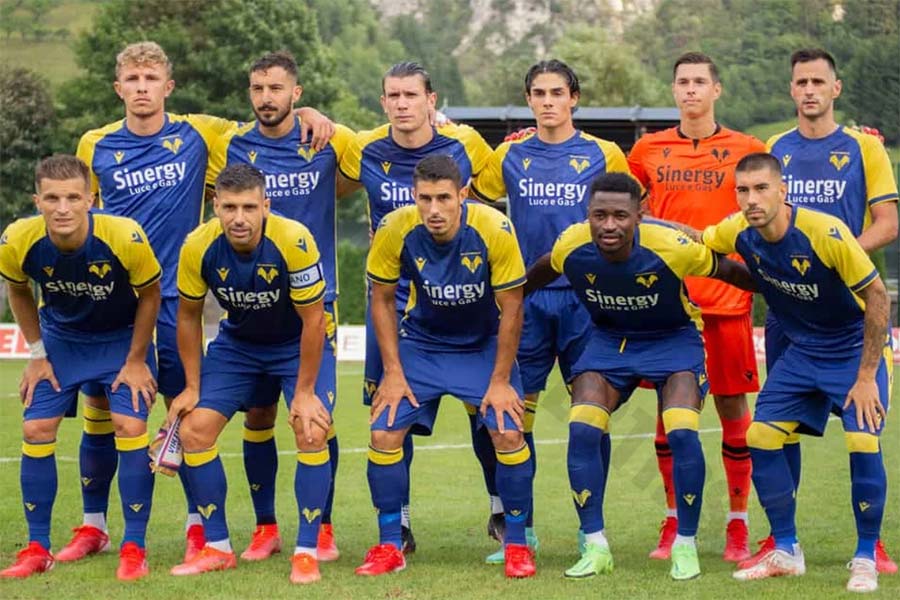
Financial challenges have been a major factor in Verona’s struggles to remain competitive with the wealthier and more established Serie A sides. The club has lacked significant investment in the squad and has often relied on veterans past their prime and inexperienced youngsters. This has led to inconsistent performances, leaving Verona unable to build a strong enough squad to sustain success in Serie A. Despite this, the team still enjoys strong support from fans and it is hoped that with financial stability and a long-term strategy, Verona will be able to improve its position in the future.
Conclusion
These 10 worst football team, each with their own history and challenges, have struggled to achieve long-term success for a variety of reasons. Whether it was poor financial management, poor recruitment decisions, or simply being outclassed by richer, more established rivals, these clubs have found themselves in dire straits. While they continue to strive for better days, their current circumstances highlight the harsh realities of football, where passion and history alone are not enough to guarantee success, and survival requires more than just a love of the game.








